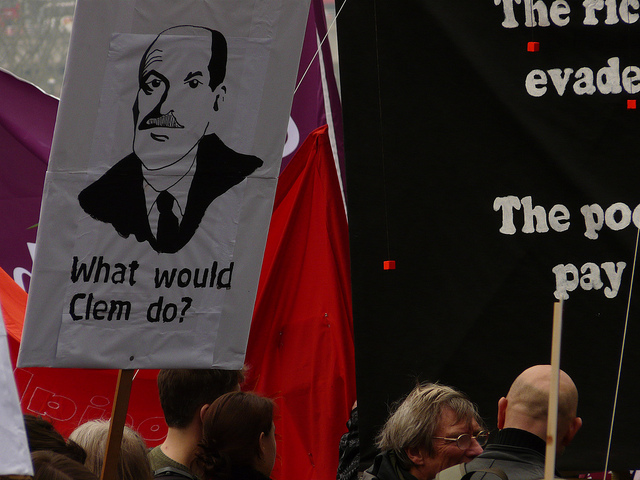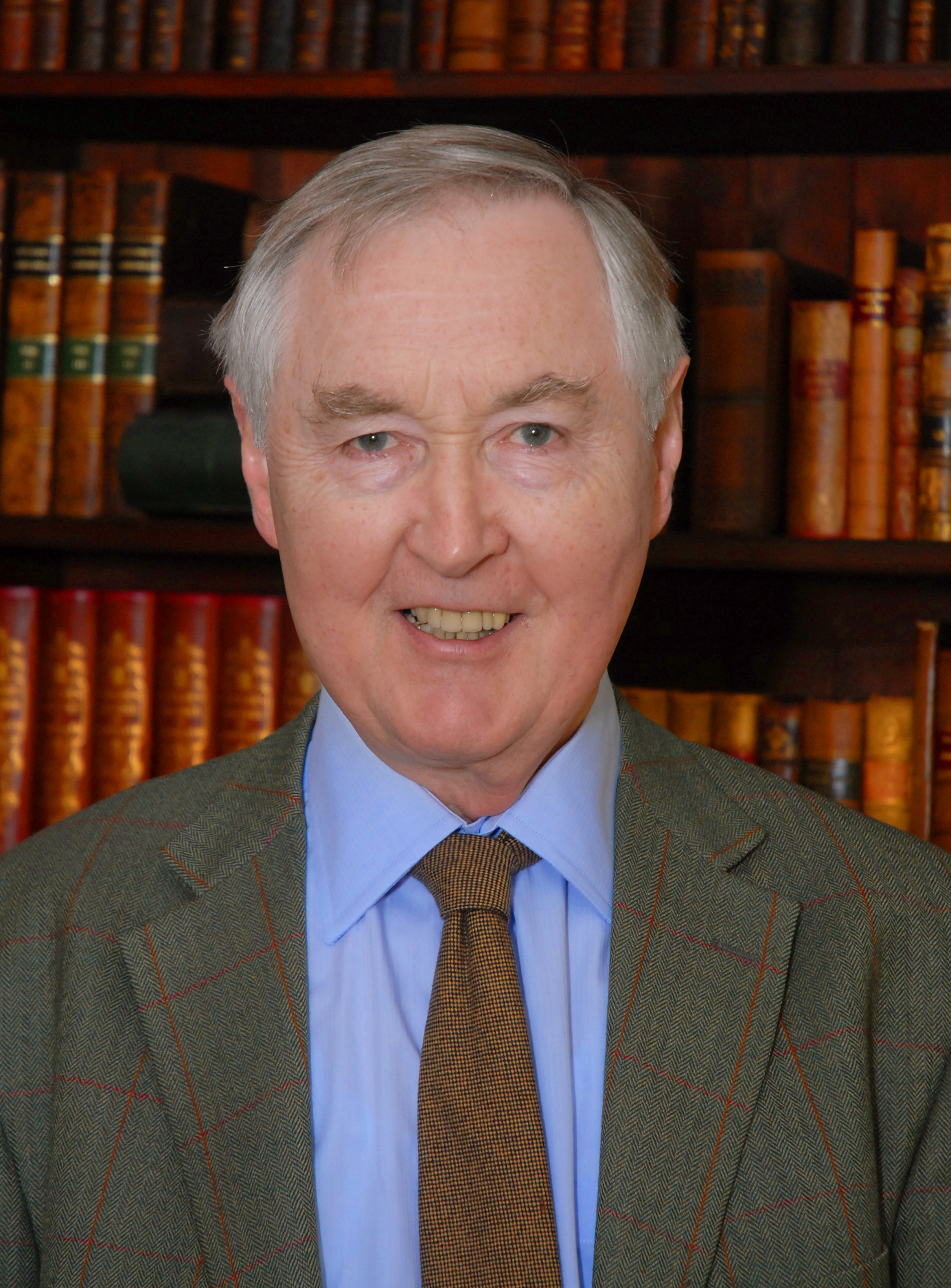Professor Archie Brown on redefining, revolutionary and transformational political leaders
In a previous post, Archie Brown argued that the notion that ‘strong leaders’ are better equipped to win elections and display leadership is flawed, with the opposite in many cases being true. In the second part of an online Q&A session with Professor Brown, he explains the concept of redefining and transformational leaders – those political leaders who do, for better or worse, fundamentally change the polity in which they operate.

Clement Attlee: not a transformational leader, but the leader of a transformational Government (Credit: Loz Pycock, CC BY NC ND 2.0)
In your book, you differentiate between ‘redefining leaders’, ‘transformational leaders’ and ‘revolutionary leaders’. What do you mean by these terms, and what real-life examples are there of these archetypes?
The book is not only concerned with ‘the myth of the strong leader’. As its sub-title suggests, it also has the more general purpose of examining ‘political leadership in the modern age’ (the focus being on the twentieth and twenty-first centuries). Most leaders do not make a huge difference to the political life of their countries. In the chapters devoted to each of the three categories of leader mentioned in your question, I am looking at those who do make such a difference. By redefining leaders, I mean those who redefine the limits of the possible within the politics of their country. Instead of seeking the existing middle ground and attempting to place themselves firmly within it, they move the centre in their direction, so that their successors find themselves having to accommodate themselves to changed assumptions and new political realities.
In the period since the Second World War, there have been only two governments in Britain I would regard as redefining in that sense. The first was the Labour government led from 1945 until 1951 by Clement Attlee and the second the Conservative government headed by Margaret Thatcher from 1979 to 1990. A redefining government does not have to be headed by a ‘strong leader’ as already defined. Attlee was a very capable and effective leader, but he headed a redefining government rather than being a redefining individual leader. He was a brisk chairman but he did not attempt to dictate policy. His main achievement was to hold together a strong and disparate team of ministers who came from different parts of the socialist and labour movement spectrum and who, in several cases, were keen personal and political rivals.
Attlee helped them to find common ground. Margaret Thatcher, in her memoirs, while not using the term ‘redefining leadership’, nevertheless recognised that this immediate post-war Labour government changed assumptions about what was both possible and desirable in British politics. They created the post-war welfare state, pursued an egalitarian policy, and undertook a series of nationalisations, only one of which – that of the iron and steel industry – was reversed prior to the 1980s when Mrs Thatcher was in 10 Downing Street. It was her government which led the retreat from a mixed economy and to an enthusiastic embrace of the market and of the private sector which has had an impact on British politics ever since – to such an extent that the most experienced minister in the present cabinet, Kenneth Clarke, described the government led by Tony Blair as ‘Thatcherism with a human face’. In the case of the Thatcher, as distinct from Attlee, government, it is legitimate to see the prime minister personally as a redefining leader (whether or not one agrees with the direction in which she moved the centre of the British political spectrum).
With transformational leaders, I am setting the bar still higher. I have in mind leaders who play a decisive role in introducing systemic change – fundamental change of the political or economic system. Most of the cases I elaborate in the book are of leaders who came to power in authoritarian regimes and used the political resources at their disposal to initiate and oversee the dismantling of the political system they inherited (outstanding examples are Adolfo Suárez in post-Franco Spain and Mikhail Gorbachev in the Soviet Union) or the transformation of the economic system (the case of Deng Xiaoping in China).
Systemic change tends to be more gradual within democracies, so it is very rare to find a politician within an already well-established democracy one would wish to describe as a transformational leader in the sense in which I use that concept. Thus, in my terms, President Franklin Roosevelt was a redefining rather than transformational leader. The New Deal did expand the limits of the possible in American politics, but it did not amount to fundamental change of the system. The best example I can find of someone in a democracy during the twentieth century who could fairly be called a transformational leader is General Charles de Gaulle. The transition from Fourth Republic to Fifth Republic France did represent systemic change – from one democratic political system to another. And in spite of the misgivings expressed at the time, the new system has turned out to be more politically stable and robust than its predecessor.
Whereas I accept an evaluative component when discussing transformational leaders – an assumption that this is both peaceful change and change for the better – there is no such postulate in the chapter on revolutionary leaders. Systemic change in this case relies on duress. It involves the violent overthrow of state structures and more often than not inaugurates new forms of authoritarian rule. I distinguish revolutionary leaders from those who play a decisive role in transforming the political or economic system of their country without resort either to violent seizure of power or to the physical coercion of their opponents. When authoritarian regimes can be ended by peaceful means, as in post-Franco Spain or in Eastern Europe in 1989, that is massively preferable to revolution. In the last resort, however, there is justification for violent revolution – the forcible removal of tyrants from power – when all attempts to change an oppressive system by peaceful means have failed. What follows, however, hardly ever lives up to the rhetoric and hopes of the more idealistic of the revolutionaries.
—
Note: this post represents the views of the author and not those of Democratic Audit or the LSE. Please read our comments policy before posting. The shortened URL for this post is: https://buff.ly/1kdiB3Q
—
 Archie Brown is Emeritus Professor of Politics at Oxford University and an Emeritus Fellow of St Anthony’s College Oxford.
Archie Brown is Emeritus Professor of Politics at Oxford University and an Emeritus Fellow of St Anthony’s College Oxford.





 Democratic Audit's core funding is provided by the Joseph Rowntree Charitable Trust. Additional funding is provided by the London School of Economics.
Democratic Audit's core funding is provided by the Joseph Rowntree Charitable Trust. Additional funding is provided by the London School of Economics.
… [Trackback]
[…] Read More: democraticaudit.com/?p=4744 […]
Professor Archie Brown on redefining, revolutionary and transformational political leaders https://t.co/M7M2hJv3zI
Professor Archie Brown on redefining, revolutionary and transformational political leaders https://t.co/3JpYqsjifE